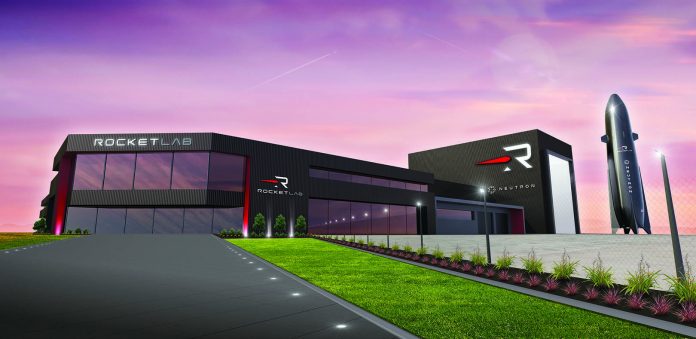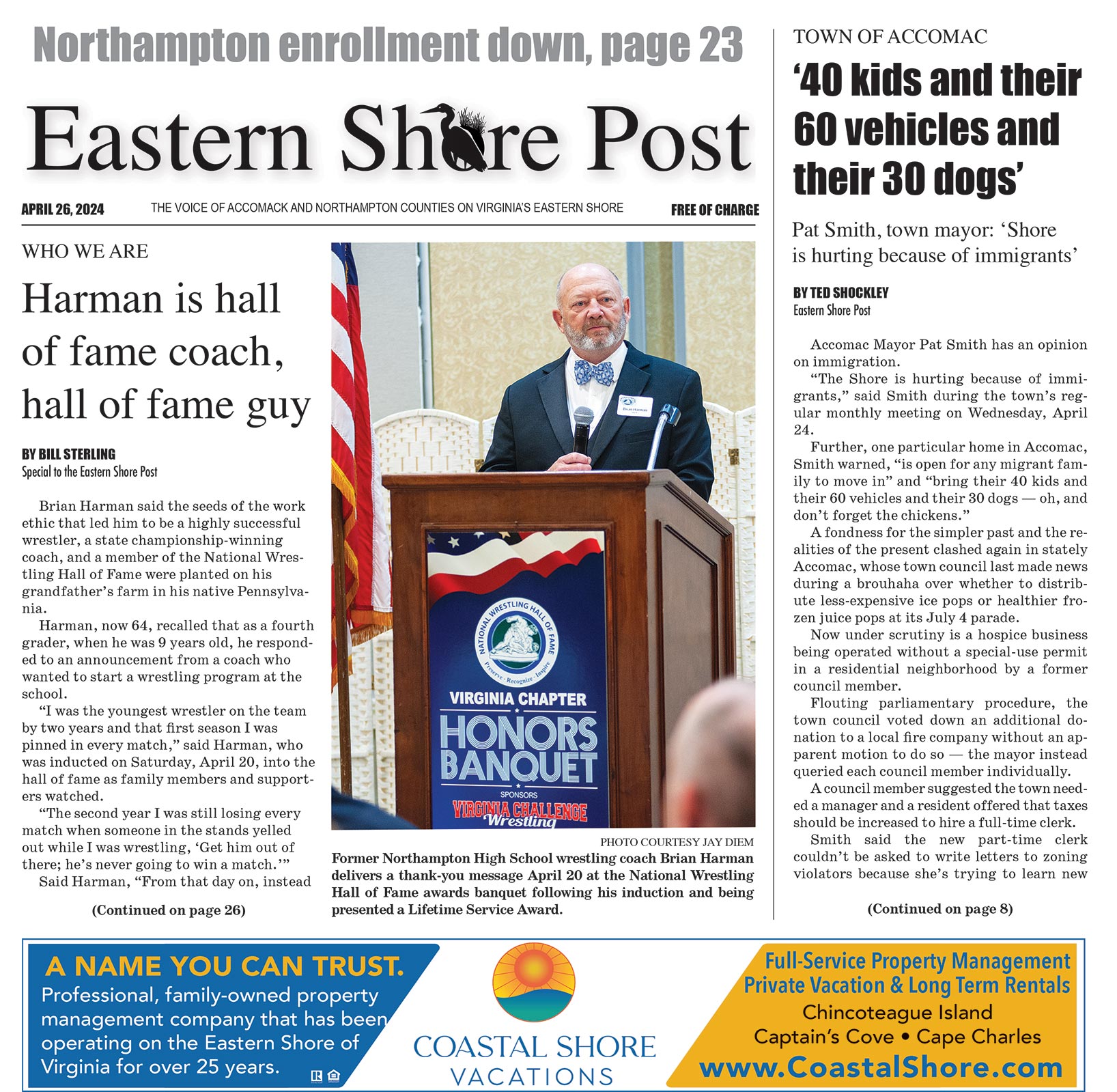
By Carol Vaughn —
Rocket Lab will celebrate the start of construction on the company’s production complex and launch site for its Neutron rocket with a groundbreaking ceremony Monday, April 11.
The production facility will be built on Wallops Island Road, just across the bridge from the Wallops Island spaceport, where the Neutron will launch from a new Virginia Space-owned launch pad at the Mid-Atlantic Regional Spaceport.
The company announced last month it had selected Wallops as the location for its launch site as well as manufacturing and operations facilities for the new rocket, a move expected to result in 250 jobs.
The 250,000-square-foot manufacturing and operations complex will be built on a 28-acre site adjacent to Wallops Island. The property was purchased by the Virginia Commercial Space Flight Authority in 2021.
Rocket Lab founder and chief executive officer Peter Beck, Gov. Glenn Youngkin, Secretary of Transportation W. Sheppard Miller III, and Secretary of Commerce and Trade Caren Merrick are scheduled to be at the event to mark the official start of construction.
Beck said during a Feb. 28 press conference the entire launch vehicle will be manufactured and assembled at the complex.
“We’ve got no time to lose here. We need to get Neutron flying. The stake in the ground is 2024, so we will be looking to break ground here extremely shortly,” Beck said then.
He said Wallops is “an ideal location for Neutron,” noting its location on the eastern seaboard and the fact that Virginia is one of only four states with an FAA-licensed spaceport.
Beck in a virtual event in December revealed details about Neutron’s design, materials, propulsion, and reusability architecture for the first time.
“This is not a conventional rocket. This is what a rocket should look like in 2050 — but we’re building it today,” said Beck, calling Neutron “an absolute beast.”
The 490-ton Neutron will be made of carbon composite, a strong but lightweight material.
It will be the first large launch vehicle made of the material.
3-D printing technology and an automated fiber placement system has made use of the material more efficient, according to Beck.
The rocket is designed to be reusable and to return to the launch site after missions.
It can lift 8 tons into low-Earth orbit in reusable mode or up to 15 tons otherwise.
“Neutron does not land on a barge. It is a return-to-launch-site vehicle,” Beck said.
The rocket is designed to launch constellations of satellites, which Beck said have unique deployment needs.
“Up until now, there hasn’t really been a vehicle that’s optimized to do that,” he said.
More than 80% of satellites to be launched in the next decade are expected to be constellations.
The rocket also could be used for geostationary deployments, human spaceflight, “and of course my personal favorite, interplanetary” missions, according to Beck.
The Neutron rocket has a wide static base and an upper stage that hangs from the payload separation plane, “which makes it incredibly strong — it also makes it the lightest upper stage ever in history,” according to Beck.
Seven of Rocket Lab’s new Archimedes engines, also reusable, will propel the first stage.
Where the company’s smaller Electron rocket provides dedicated access to orbit for small satellites up to 660 pounds, Rocket Lab expects Neutron will further expand space access for satellite constellations and provide a dependable, high-flight-rate dedicated launch solution for larger commercial and government payloads, according to Morgan Bailey, Rocket Lab communications director.
Rocket Lab previously announced it also will launch its smaller Electron rocket from Wallops.
Major General Ted Mercer, chief executive officer and executive director of Virginia Space, said the first Electron launch from Wallops is expected to happen later this year.
He said that, while a new launch pad is being built for Neutron launches, it also may be used for other launches.
Rocket Lab’s cost to develop the Neutron is at least $200 million, according to Beck.
The Virginia Economic Development Partnership worked with Accomack County, Virginia Space, and the General Assembly’s Major Employment and Investment (MEI) Project Approval Commission to secure the Neutron project for Virginia.
Rocket Lab was founded in 2006 and has two launch sites in New Zealand in addition to its U.S. site.


